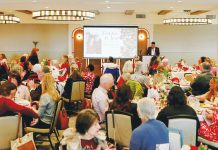As a litigator, I go to trial once or twice a year, but the vast majority of civil cases are settled through mediation these days. In mediation, there is no judge or jury, just a mediator who makes no decisions. It is his or her job to steer both parties to a resolution that is acceptable to both, even if it isn’t precisely what either party wanted.
The advantages of keeping the decision-making with the parties, rather than a judge or jury, was never more clearly illustrated to me than in what occurred in the California Supreme Court a few weeks ago.
First, some background:
A few years back, a client was referred to me who had fallen off a roof and severely hurt himself. He was working on a 1,000-square-foot house addition. His boss was the owner of the property and, in addition, a general contractor. The boss refused to provide the safety equipment to prevent such a fall, though it is required by law. Nor did he have a workers’ compensation insurance policy.
My client was a journeyman electrician in his prime earning years, and the fall wiped out his ability to ever earn a living as an electrician again.
In all but a handful of cases, when an employee is hurt on the job, he cannot sue his employer. His only remedy is to look to workers’ compensation. (If a third party was at least partly responsible for the accident, the employee would have a right to bring a personal injury lawsuit against the third party, but that’s a subject for another column.)
If, however, the employer doesn’t have workers’ compensation, all bets are off. The Legislature gets very mad at people who have employees but don’t carry workers’ compensation. Not only can the employer be sued, but there are a host of advantages that help an employee win the case against his employer.
In my client’s case, the owner visited him in the hospital, produced a bawdy picture of the other workers, ostensibly to lift his spirits, but pleaded poverty when my client said he couldn’t pay the hospital bill. Sorry about the fall — good luck.
It didn’t take long to determine that the contractor had substantial resources, plus a homeowner’s insurance policy of $1 million. And that’s when the legal troubles started — for me.
Although the owner-boss didn’t have a commercial workers’ compensation policy, within every homeowner’s insurance policy in the state of California is a small workers’ compensation policy. This policy, however, is quite narrow, covering only “domestic workers,” such as baby sitters, maids and gardeners.
The insurance carrier denied coverage, saying that my client was not a domestic worker, which, of course, makes sense. No rational person would call an electrician on a construction site a domestic worker. Still, the insurance carrier suddenly realized that by denying coverage under workers’ compensation, it faced a $1 million-plus personal injury claim.
After waking up to that sobering fact, the company declared: Good news, your client is a domestic worker and qualifies for workers’ compensation under the homeowner’s policy. Here is your meager settlement, now get lost.
When I demurred to this logic, it went to a judge to decide whether my client was a domestic worker. The carrier’s argument was that, as long as someone was working on a personal residence, that person was a domestic worker. It didn’t matter what the job was.
There is a healthy segment of our society that believes lawyers and judges have zero common sense. It is cases like this that make one wonder if that segment isn’t 100 percent correct.
The trial judge ruled that my electrician client was a domestic worker akin to a baby sitter. He went on to hold that building a 1,000-square-foot addition was merely incidental to home ownership, and any work done on a personal residence is domestic.
To my astonishment, the Sixth District Court of Appeal agreed. We appealed to the California Supreme Court. Unfortunately, that court has discretion on which cases it will take. It only takes a few, and my client’s was not one of them.
But a few weeks ago, in a case strikingly similar to my client’s, the California Supreme Court ruled on a 7-0 vote that calling a construction worker a domestic employee is balderdash. Whereas the ruling gave my client emotional vindication, it did nothing to compensate him for his loss or restore his profound dismay with our legal system.
It also reminded me of a valuable lesson: Just because something seems obvious to me or my client doesn’t mean a jury or judge will see it that way.
Keeping the decisions with the clients and away from the judge or jury prevents the all-or-nothing result that can devastate a client. And that — along with the extraordinary cost of litigation — is why as many as 90 percent of all civil cases are settled through mediation.
Gary Redenbacher, of Scotts Valley, is an attorney in private practice. Contact him at ga**@*********aw.com.












